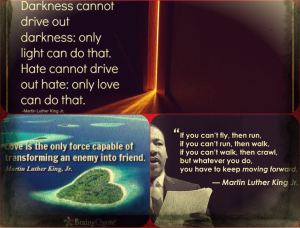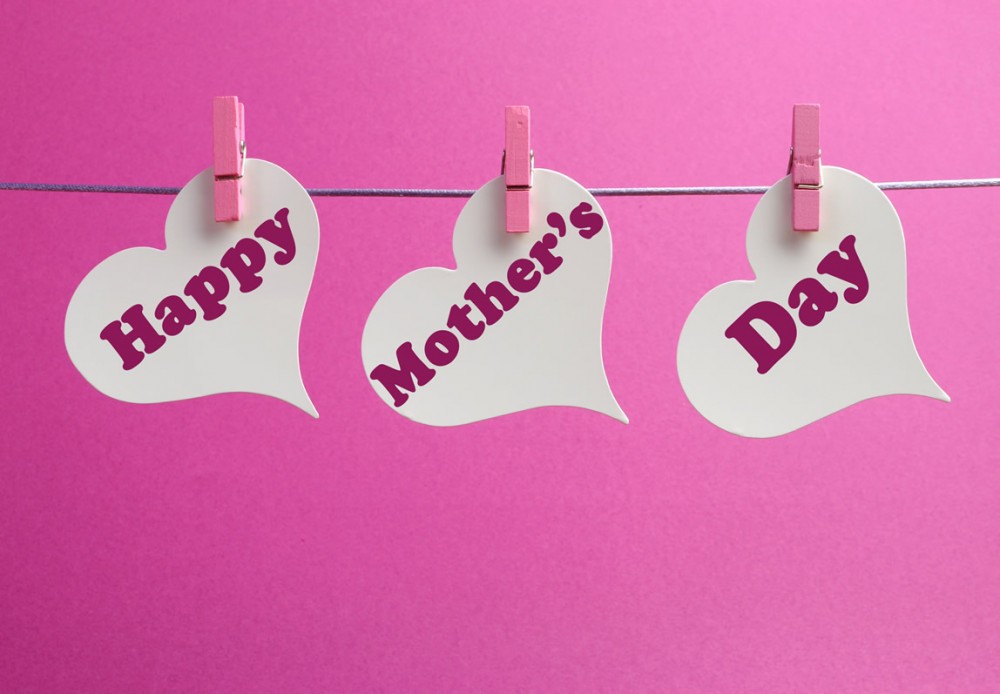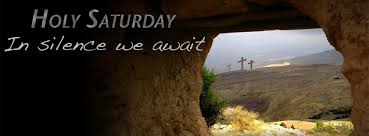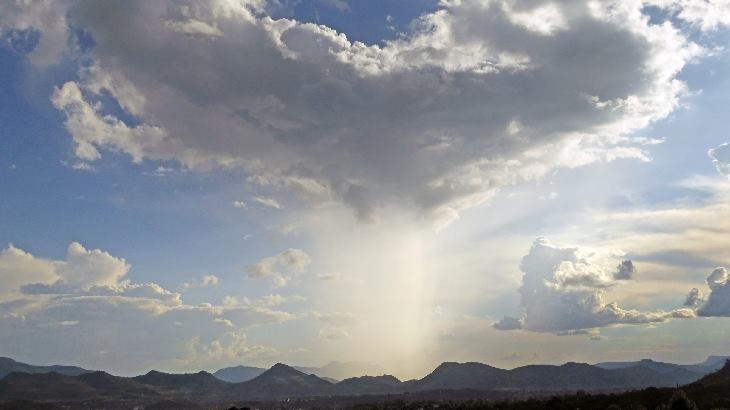Posts Tagged ‘love’
Love As A Passion To Be Pursued
Today, as we celebrate Valentine’s Day, our thoughts and feelings turn to love and to those whom we love. But do we really understand what that simple, yet powerful word, LOVE, means?
Personally, this is a tough word for me to reflect on since my natural inclination is toward the intellectual pursuits rather than understanding my emotions. Yes, as a counselor I deal with the emotions of my clients, but note what I wrote: “my” emotions. I have no issue in helping others to come to an understanding of their own emotions and how they affect their lives. But my emotions, well, that’s a whole different story.
So, what is love? This is what the Christian bible states about love:
1If I speak with the tongues of men and of angels, but do not have love, I have become a noisy gong or a clanging cymbal. 2If I have the gift of prophecy, and know all mysteries and all knowledge; and if I have all faith, so as to remove mountains, but do not have love, I am nothing. 3And if I give all my possessions to feed the poor, and if I surrender my body to be burned, but do not have love, it profits me nothing.4Love is patient, love is kind and is not jealous; love does not brag and is not arrogant, 5does not act unbecomingly; it does not seek its own, is not provoked, does not take into account a wrong suffered, 6does not rejoice in unrighteousness, but rejoices with the truth;7bears all things, believes all things, hopes all things, endures all things.8Love never fails; but if there are gifts of prophecy, they will be done away; if there are tongues, they will cease; if there is knowledge, it will be done away.9For we know in part and we prophesy in part; 10but when the perfect comes, the partial will be done away. 11When I was a child, I used to speak like a child, think like a child, reason like a child; when I became a man, I did away with childish things. 12For now we see in a mirror dimly, but then face to face; now I know in part, but then I will know fully just as I also have been fully known. 13But now faith, hope, love, abide these three; but the greatest of these is love.
Angry At The World? Use That Anger For Good
Maybe it’s just me, but it appears that anger is the main emotion of our time. Yes, there is kindness, and I do meet people who are not angry; yet, of the people I meet, more display anger than who display kindness. I don’t think my experience is abnormal.
In a study conducted a year ago, researchers Okuda, et al. discovered that 7.8% of the Americans they surveyed, 34,000 adults over the age of 18, found an overall prevalence of inappropriate, intense, or poorly controlled anger. That percentage may not seem high, but round out the numbers, and for every 34,000 adult Americans, 3,000 of them exhibit poorly controlled anger. (“Prevalence and correlates of anger in the community: results from a national survey.“ April 2015)
Why is there so much anger? We see it in the streets, in demonstrations, on social media, etc. I have my theories, but the focus of this article is not on the why, or the origin, of the anger. Rather, I write this article on anger from the perspective of mindfulness. In mindfulness we are urged to remain in the moment, non judgmentally. Following that suggestion, I don’t necessarily need to understand why someone is angry. What would be helpful, assuming the anger is taking a person away from their peace, is to guide that person to shift their perspective and so take an action in the hopes of returning that person to sense of peace.
As a counselor and practitioner of mindfulness, I don’t perceive the feeling of anger as either positive or negative. The feeling is the feeling; what I do with the feeling is what is either positive or negative. So, anger in and of itself is not the issue. My perception and actions based on the anger is the issue. Therefore, that many people these days seem to be angry is not what bothers me. What many of them are or are not doing is the issue.
Anger, as an emotion, has it’s place. Anger has been used successfully as a means of defense against danger, both physical and emotional. Anger, felt when we perceive a threat, produces in us an increase of the chemical adrenaline. This chemical prepares the body for a physical fight, and for later coping with the emotions of the event.
In today’s society, whenever we feel that our ideas, beliefs, or opinions are attacked, our basic instinct kicks in resulting in an anger response. Anger is undoubtedly the most judgmental of our emotions. It’s also the most moralistic, self-righteous, and repudiating. Most of us will defend, sometimes to the death, what we believe. Attacking a person’s beliefs or opinions is akin to an attack of the person themself. Why? Because we are the thinker of our thoughts! In essence, if you attack my thoughts, you attack what I created, and in so doing you attack the creator, me.
Anger is probably the only emotion which we consciously cling to. Think about the last time you felt happiest. How long did that feeling, in it’s intensity, last? And when the feeling drifted away, many of us say “I wish it lasted longer.” Yet, when it comes to anger, when was the last time that feeling simply drifted away? For many of us, we hold onto it, ruminating over and over the offense which was done. Logically, between the emotions of happiness and anger, which would you choose to stick around? I would choose happiness, but as I write this I’m not angry. If I were, odds are I’d be choosing anger.
Why do we hold on to anger? Let’s examine what the emotion of anger does for us:
- It provides us with a feeling of power.
- It enables us to believe that we are in control of the situation.
- It confirms for us that we are right and correct in our stance.
Examining this list, why wouldn’t I want to hold onto anger? Actually, there is a number one reason why we can’t bear to let go of our anger. If I give up feeling angry then I allow myself to feel less powerful, less in control, and I may discover that I’m not completely correct in my thoughts or beliefs. If I am willing to give over power and control to re-examine my thoughts, I have just opened myself up to self-examination!
Self-examination is one of the goals of meditation, and a means of growth. But self-examination can be scary as we uncover aspects about us that we may not wish to open, or aspects that even we don’t like. As we hold onto our anger we don’t allow for this self-examination. In many cases, that which angers us in others is exactly what we are covering up in ourselves!
As I see it, there is what I call a “healthy anger” as opposed to an “unhealthy anger”. Healthy anger is feeling angry by choice (I grant that all emotions ultimately are chosen, as I often mention. For the sake of this analogy I am taking some license). For example, you witness an injustice and become angry since your belief system speaks to justice for all. Your motivation for feeling the anger is not toward a self-righteous indignation or a sense to overpower someone “because I can”. Your anger, in this scenario, most likely will result in action toward resolving the injustice, whereby all parties involved will be granted a sense of peace. As peace overtakes the anger one is willingly open to self-examination. While the unhealthy anger is that anger which I hold in a self-righteous manner with no motivation or intention toward a sense of peace or self-examination.
The person who practices mindfulness, meditation, and self-examination (the best they can) recognizes within them a sense of peace and peacefulness. Note that I don’t speak of the “feeling” of peace, rather, the sense of peace. Feelings, such as anger and happiness, are fleeting. They come and go. Having a sense of peace within is not fleeting. A sense of inner peace speaks to an awareness of the person and their environment. We can feel angry, happy, sad, etc,, while at the same time maintaining a sense of peace. Look to people such as Ghandi and Martin Luther King, Jr. I have no doubt they felt anger, that was part of their motivation as to why they acted. But a reason their actions were not violent, and their rhetoric was of love is that they had a sense of inner peace allowing them to feel anger, yet not allowing them to betray their beliefs through their actions.
When we feel emotions and act in unison with our core beliefs, not violating our true self, then we are at peace. We may feel anger or sadness at situations or even toward specific people, but in maintaining a union between those feelings and our actions to our core beliefs, we retain our sense of inner peace even as we struggle through the turmoil of our feelings.
Our challenge is not to stop feeling angry. Rather, our challenge is to learn how best to respond to anger. Here are my steps for using anger for the good:
- Prior to feeling angry, practice mindful meditation and spend time in self-examination.
- When you feel anger, find your inner peace to help change your perspective to understand the situation from everyone’s viewpoint.
- Take action in union with your core beliefs and which will ultimately lead to the spreading of peace to all involved.
- When the situation is over, refuse the urge to hold onto the anger. Let your inner peace over take the anger and allow yourself time to re-charge.
I agree that there is much in our world toward which to feel anger, and there are many places and people who do not have a sense of peace. Use the steps above to rise to the challenge of using your anger for the good.
{loadmodule mod_custom,continue the conversation here or on social media}
Merry Christmas
our family nativity with St. Francis Assisi
Christmas has arrived! That magical time of the year when all seems to be at peace. That time of the year when nature seems still, wars paused, enemies celebrate together, kids believe in magic and the hope of treasure. A time when most of us recall how we spent the season as a child, longing once again for that simplicity of life. Amidst all the secular commercialization, this time of the year still seems to hold a special place for us.
This picture is of the manger scene our family has set up for over two decades, and since the 1980’s I have added the statue of St. Francis of Assisi to my manger scene. Why?
In a little town in Italy, named Greccio, in the year 1223, St. Francis led an evening prayer service for the towns’ people, and to make the event meaningful he decided to recreate, live, the nativity, the birth of Jesus. Prior to this event, the displaying of nativity scenes was unheard of. But for Francis, the importance of the nativity event was that it was a real event. Historically, in the town of Bethlehem, a child, later to be named Jesus by his parents, was born. Francis, believing that this child was the son of God born into our world wanted the people of Greccio to fully understand that our God is approachable and knows us for He was born as one of us. What better way to explain this concept than by actually reenacting the scene. The rest, as they say, is history.
This Christmas, how can I make “real” in my life that which happened over 2,000 years ago? Every year, since I was a child, I watch the classic show “How the Grinch Stole Christmas”. The original version brings back so many fond memories, and now as an adult I continue to enjoy it for the meaning of the story. The Grinch couldn’t take away Christmas by taking away the people’s “stuff”. Christmas, for the Who’s in Whoville, meant a lot more than what they had or didn’t have. For them, Christmas was an internal existence. A deeper sense of what the season is all about.
What is Christmas all about? Is it the birth of a child, the son of God, into the world? And if so, what does that mean for me today? The humble birth of Jesus is a sign of the love God has for us, and that love needs to be put into action in the love we have for others. In order for us to fully love another we first need to love and respect ourselves. As God becomes one of us He shows us the importance of us as humans. If God respects us than we also need to respect ourselves We were worthy enough for our Lord to become one of us, it is important for us to feel that worthiness within ourselves. When we love ourselves we are more fully able to love those around us, and that outpouring of love makes “real” the presence of God in our lives.
So, what is this season all about? Loving ourselves and loving others so that the love of God may be present in our world. This is what St. Francis tried to show the people of Greccio. I hope Francis’ message continues today in the nativity scenes we have set up. This Christmas season find ways to make Jesus real in the lives of others. If we all did this, gave the present of love to another, just think of how different our world be. Each day is a new opportunity for us. Let’s take the magic of this season and make today a magical day of love.
I wish you and your loved ones a very merry, blessed and peace-filled Christmas!!
{loadmodule mod_custom,continue the conversation here or on social media}
Rest Stop (Mother’s Day) … love
“Let us love one another, for love comes from God. Everyone who loves has been born of God and knows God. No one has ever seen God; but if we love one another, God lives in us and His love is made complete in us.” 1 John 4: 7; 12
Today, in the United States, we celebrate and remember our mothers on this their special day! What is it about mothers which causes us to feel such a fondness for them? For me, in my life’s journey and reflection, there is no truer description of a mother other than the word “love”. Love, felt in its deepest sense, is expressed by a person (mom) just because we exist. The love of a mother has nothing to do with who I am or what I give in return. No, the love of a mother, whether she bore you or not, is freely given simply because you exist. In this unconditional love is where we find motherhood as a reflection of the Divine, of God. Total and complete love, not requiring anything else.
Several years ago, Robert Fulghum wrote a book entitled “All I Really Need to Know I Learned in Kindergarten“. I would like to share it now as a tribute to Mothers and all they teach us. I know this wasn’t Fulghum’s intent, but his reflection speaks perfectly to the lessons taught us by the women who very deeply cared for and about us.
All I really need to know about how to live and what to do and how to be I learned in kindergarten. Wisdom was not at the top of the of the graduate-school mountain, but there in the sandpile at Sunday School. These are the things I learned:
Share everything. Play fair. Don’t hit people. Put things back where you found them. Clean up your own mess. Don’t take things that aren’t yours. Say you’re sorry when you hurt somebody. Wash your hands before you eat. Flush. Warm cookies and cold milk are good for you. Live a balanced life — learn some and think some and draw and paint and sing and dance and play and work every day some. Take a nap every afternoon. When you go out into the world, watch out for traffic, hold hands, and stick together.
BE AWARE OF WONDER. Remember the little seed in the styrofoam cup: the roots go down and the plant goes up and nobody really knows how or why, but we are all like that. Goldfish and hamsters and white mice and even the little seed in the styrofoam cup — they all die. So do we. And then remember the Dick-and-Jane books and the first word you learned – the biggest word of all — LOOK.
Everything you need to know is in there somewhere. The Golden Rule and love and basic sanitation. Ecology and politics and equality and sane living. Take any one of those items and extrapolate it into sophisticated adult terms and apply it to your family life or your work or your government or your world and it holds true and clear and firm.
Think what a better world it would be if we all — the whole world — had cookies and milk about three o’clock every afternoon and then lay down with our blankies for a nap. Or if all governments had as a basic policy to always put things back where they found them and to clean up their own mess.
And it is still true, no matter how old you are — when you go out into the world, it is best to hold hands and stick together.
As we remember and celebrate Mothers on this day, how best can we honor the person who has given us the greatest gift of all: unconditional love!
… continue the conversation here or on social media …
{loadposition blogsocial}
Rest Stop (Holy Saturday) … grief, hope, faith
Holy Saturday, the day after the death of Jesus, Christians await, in hope and in faith, for God to show us a sign that Jesus is truly His son. When we think of the emotions of the followers of Jesus, so sure that He was the savior, to experience His death, their heartbreak and confusion must’ve been unbearable! Were they duped? How were they so wrong to think that Jesus was God? Yet, because of everything that they experienced while with Jesus, there still exists a sense of hope in their hearts. They don’t yet understand, and they are questioning, but they haven’t yet fully rejected the belief that Jesus is the son of God.
Taken from the Christian prayer-book “The Liturgy of the Hours”, here is an ancient sermon attributed to Easter yet prayed on Holy Saturday. What does this sermon says to you in your life’s journey:
… continue the conversation here or on social media …
{loadposition blogsocial}
Rest Stop (Good Friday) … love
Love; the complete and selfless giving for another; a desire to allow the other to shine and to grow. On this day, Good Friday, Christians recall Jesus, who out of love, willingly gave Himself to suffer and to die so that we may shine and grow. Jesus, the night before, agonized and prayed over this decision of suffering and dying, hoping for another way to carry out our salvation. But in the end, in response to the message Jesus hears in prayer, He says “not my will, but Your will be done.” In trust, faith and love Jesus freely suffers and dies for us.
How do we express love for others? Do we, in faith, trust enough to share our love? When we are suffering and find life difficult, in faith do we turn to Jesus who not only suffered, but who also found life’s situations difficult to endure?
Today, in faith and trust, knowing that Jesus understands what it’s like to make difficult decisions, to suffer, to feel physical and emotional pain, and to love, do we turn to Him in prayer and ask for guidance, for strength, for hope, for peace, for …..
… continue the conversation here or on social media …
{loadposition blogsocial}
Rest Stop (Valentine’s Day) … love is an action
“Darkness cannot drive out darkness: only light can do that.
Hate cannot drive out hate: only love can do that.”
-Dr. Martin Luther King, Jr
Heart Cloud (credit: unknown)
Today, as many of us celebrate Valentine’s Day, our thoughts turn to love and those whom we love. But do we really understand what that simple, yet very powerful word, LOVE, means? This four letter word holds power, and not just power over our emotions, but also power over the prospect of world peace.
So what does this word mean? Personally, this is a tough word for me to reflect on since my natural inclination is more toward the intellectual pursuits not understanding my emotions. Yes, as a counselor I deal with emotions, but note what I wrote: “my” emotions. I have no issue in helping others to come to an understanding of their own emotions and how they affect their lives. But my emotions, well, that’s a whole different story.
So, what is love? This is what the Christian bible states about love:
… continue the conversation here or on social media …
{loadposition blogsocial}









